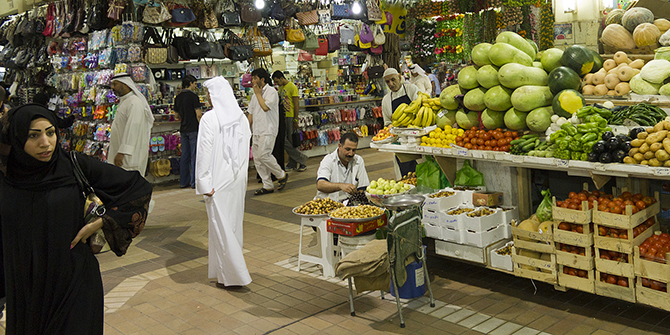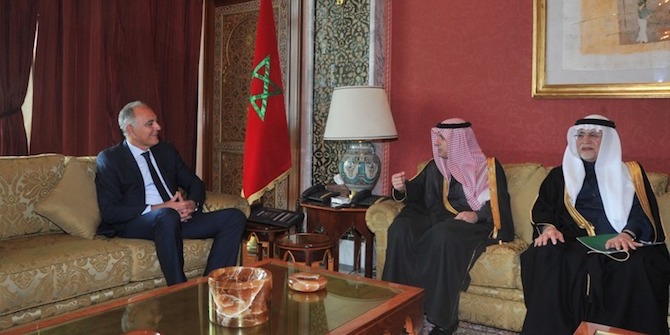by Mariam Alkazemi

In the Kuwaiti register Alkuwayt Alyom, Ministerial Decree 80 of 2016 was published on 29 May, prohibiting printed or broadcast advertisements that promote the sale of food and nutritional materials prepared in private housing, except after gaining the approval of the municipality. This restriction of commercial speech in Kuwait serves the function of protecting consumers. The release of this ministerial decree is interesting for several reasons. For instance, businesses operating from homes are currently illegal in Kuwait. Requiring individuals to obtain a license from a municipality to permit the promotion of food that is illegally produced in itself seems ironic. Although The Kuwait Times suggests a decision challenging this legal status is being made, the discrepancies between the legally required wages of domestic and corporate employees who may work in businesses operating from residential and corporate locations would then need to be reconciled. Such progress would be extremely important for small and medium-size businesses that may not be able to afford commercial rent—such as those advocating for legal reform on the Legalize Kuwait Facebook page.
Government regulations on the advertising industry are placed to protect consumers globally. This has been true with regards to tobacco, alcohol and gambling. Recently, London’s mayor outlawed Protein World advertisements on the tube that could cause pressure on women to conform to unhealthy or unrealistic body expectations. However, developing countries are unique because of the amplified challenges of improving food quality in nascent regulatory institutions and weaker civil societies. Cultural characteristics of Kuwaiti society further complicate this procedure as published research demonstrates that social connections, referred to as wasta in Arabic, affect how health-related resources are used in Kuwait. However, there is hope that Kuwaiti consumers can protect their health.
Michael Herb proposes the idea of Kuwaiti exceptionalism in which he weaves together reasons that Kuwait is more likely to democratise than other Gulf states. He explains that it is in the national character of the Kuwaiti middle-class to negotiate power with political and economic elites, in part, through a parliament that is sometimes referred to as ‘cantankerous’ by other Gulf states. This aspect of Kuwaiti society should be used to its advantage.
There is an alternative to developing policy that is difficult to enforce and increases bureaucratic obstacles, which would be more compatible with the Kuwaiti national character. While the formation of policy to protect consumers can be useful, another form of consumer protection is functional literacy. Functional literacy is a combination of knowledge and skills that can be acquired by a person in order to improve daily routines and help individuals gain more control over their life circumstances. Applied to healthcare, health literacy is about the individual’s ability to receive information, process it, understand it and communicate it in ways that result in more informed decisions. The lack of health literacy poses a social risk because it can make medications less effective when they are not taken correctly, for instance. Until legal reforms are made to make the enforcement of food regulations and the promotion of food retailing more feasible, health literacy is compatible with the idea of Kuwaiti exceptionalism because of its focus on improving the quality of life of the Kuwaiti middle-class.
Some Kuwaiti communications campaigns have already explored the importance of educating members of the public on food safety and healthy living practices. As economic and public health reforms, such as value-added taxes, continue to develop in the Arab Gulf states, it is important to ensure that there are ways to make these efforts sustainable. While the debate about whether or not corporate social responsibility should be deducted from a business’ taxes exists in nations with a more developed system for taxation, it is important to provide incentives for programmes that enable an individual to make better choices in Kuwait. A more informed citizen that can make healthier choices is an empowered citizen. Informed citizens are a much more reliable future for Kuwait.
Regardless of the regulation, it is in the interest of Kuwait to grow the private sector and the small and medium-size businesses within it and to allow the media to promote it. As oil revenues decline, the opportunity to develop policy that protects public health without discouraging residential entrepreneurs from pursuing food-related businesses should not be missed.
 Dr Mariam Alkazemi is Visiting Fellow at the LSE Kuwait Programme, Middle East Centre. She is also Assistant Professor of Mass Communication at the Gulf University for Science and Technology (GUST) in Kuwait. Mariam is currently researching the role of social media and advertising regulation in the protection of Kuwaiti consumers.
Dr Mariam Alkazemi is Visiting Fellow at the LSE Kuwait Programme, Middle East Centre. She is also Assistant Professor of Mass Communication at the Gulf University for Science and Technology (GUST) in Kuwait. Mariam is currently researching the role of social media and advertising regulation in the protection of Kuwaiti consumers.






